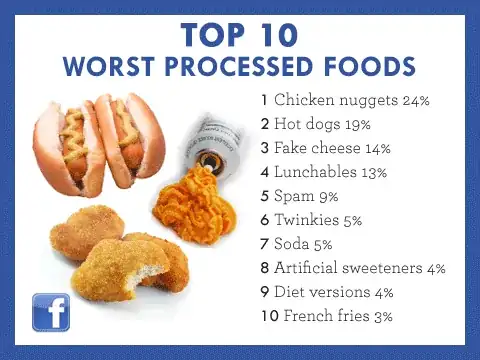Jamie Oliver always talks about how processed food is awful, and we should stop eating it.
By processed food he means food which is pre-prepared and contains additives. He instead insists that food cooked from fresh local ingredients is much healthier.
By reading the ingredients lists on the foods you buy, understanding what you are eating and cooking more fresh food for yourself and your family you can become empowered to make the right food choices. Ingredients lists shouldn't be a long list of unpronounceable things you've never heard of. Avoid processed foods and you will see and feel the benefits.
-- source
An example of his claims is the following:
Well, I think it’s pretty simple really: forty years ago we ate mostly fresh, local food, and we knew where that food was coming from. But then fast and heavily processed foods crept in and totally changed our palettes and food businesses. And ultimately, this food is killing us. Obesity and weight gain are the most obvious symptoms, but the problem I have in telling this story is that there are also loads of skinny people suffering because the garbage they are eating is affecting them in a different, but equally dramatic way.

Is there any evidence that food containing preservatives is worse for our health than freshly cooked food?
For example, if I were to cook chicken nuggets from fresh ingredients would it be healthier than using pre-made ones?